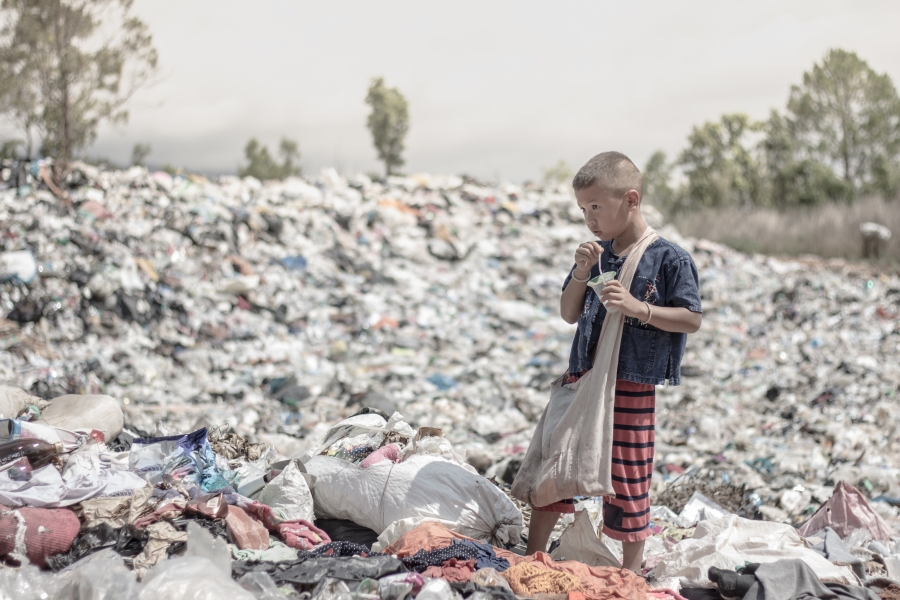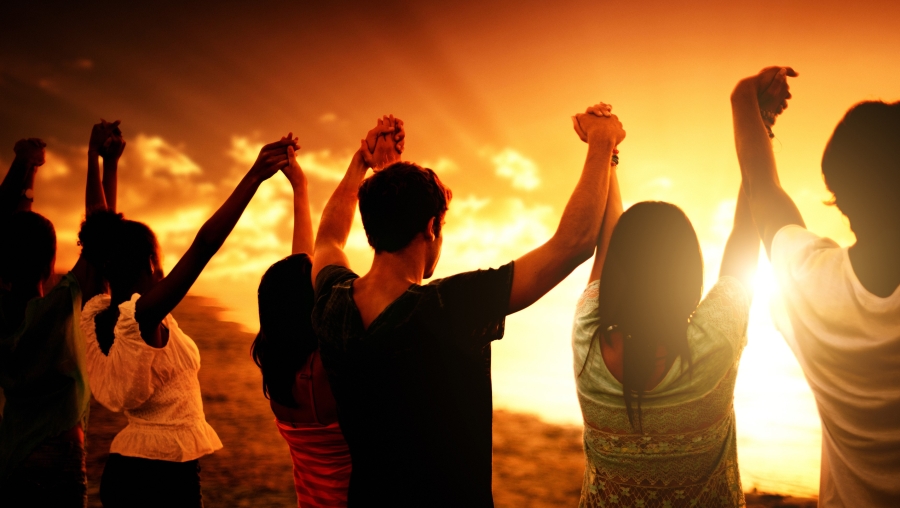There are enough natural resources and technology to ensure that everyone on our planet has enough food, clean water, shelter and medical care. Though the situation has recently improved for some, millions still lack these basic necessities.
Why?
The answer lies in the question itself, in the deceptiveness of the word, “we”. Because most of the time we do not think of ourselves as “we humans”. Most of the time “we” means our family, our community, our country or whatever group we identify with. We live in a world of “us” and “them”. We look after “our own”. As for “them”, well...

In our minds “they” are not “our” problem. We think that starvation, squalor and ill health are the problems of other countries, other communities. By compartmentalising “us” and “them” we create division where there is none. We effectively deny the humanity of others. If we are serious in ending needless suffering, we need to open our horizons, expand our consciousness, so “we” means everyone, all the humans on our planet.
Why do we continue to cling to the notions of tribe and territory? This is an ancient and powerfully coercive mindset that belongs to our past, not our future. Our future lies in embracing all this planet and its peoples. We are inextricably linked to each other through the interdependency of our economies, our shared environment and our common spirituality. We need to open our eyes and hearts to our mutual humanity. Where one part of our city, our country or our world struggles, we all lose out. If one sector of our community is not able to reach its potential, we are all held back. It impacts us all because we need each other to survive and thrive.

Putting our humanity first
Global challenges need global solutions. We can approach issues like the need for universal medical care, shortages in food and clean water from the perspective of humanity as a whole rather than the narrow short-term interests of our individual “tribe”. We do not live in the same kind of world as our ancestors. As our way of life has evolved, so our thinking needs to change with it. In a global world, it no longer makes sense to act as we did thousands of years ago. We need to open ourselves to acting for the good of all the peoples of this planet. The challenge of humanity is to recognise that we are one family. And that our first obligation is to our common humanity.
By Thérèse Barton & Simenon Honoré.
Part 2 of this article will be available in the next issue.
You can discover more about this topic in the book We Are One – A Manifesto for Humanity by Simenon Honoré.
Not yet signed up for our newsletter? It only takes a minute, here.
Popular posts
You might also like
Email Newsletter Our latest articles and offers delivered straight to your inbox.
Our latest articles and offers delivered straight to your inbox.